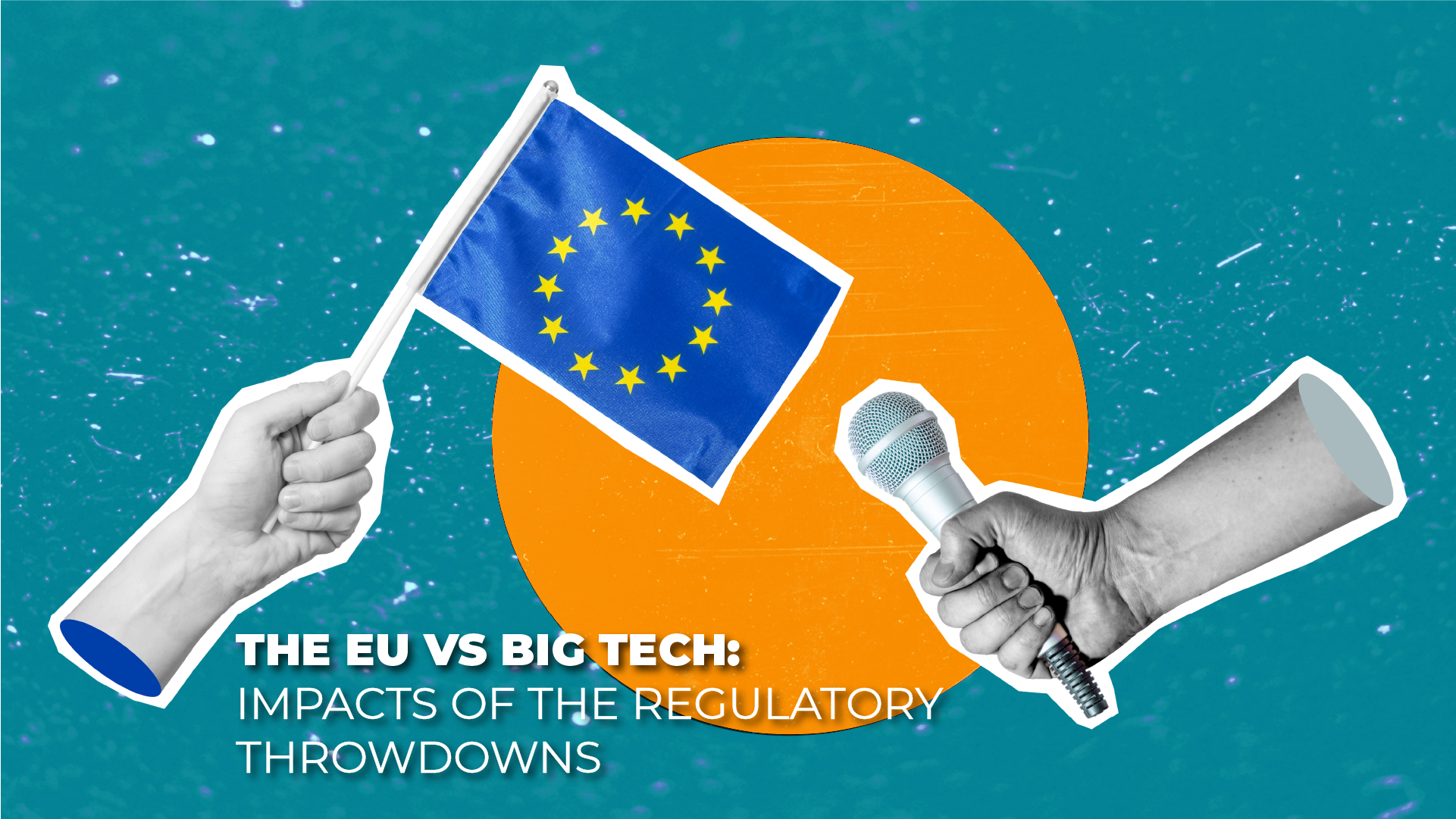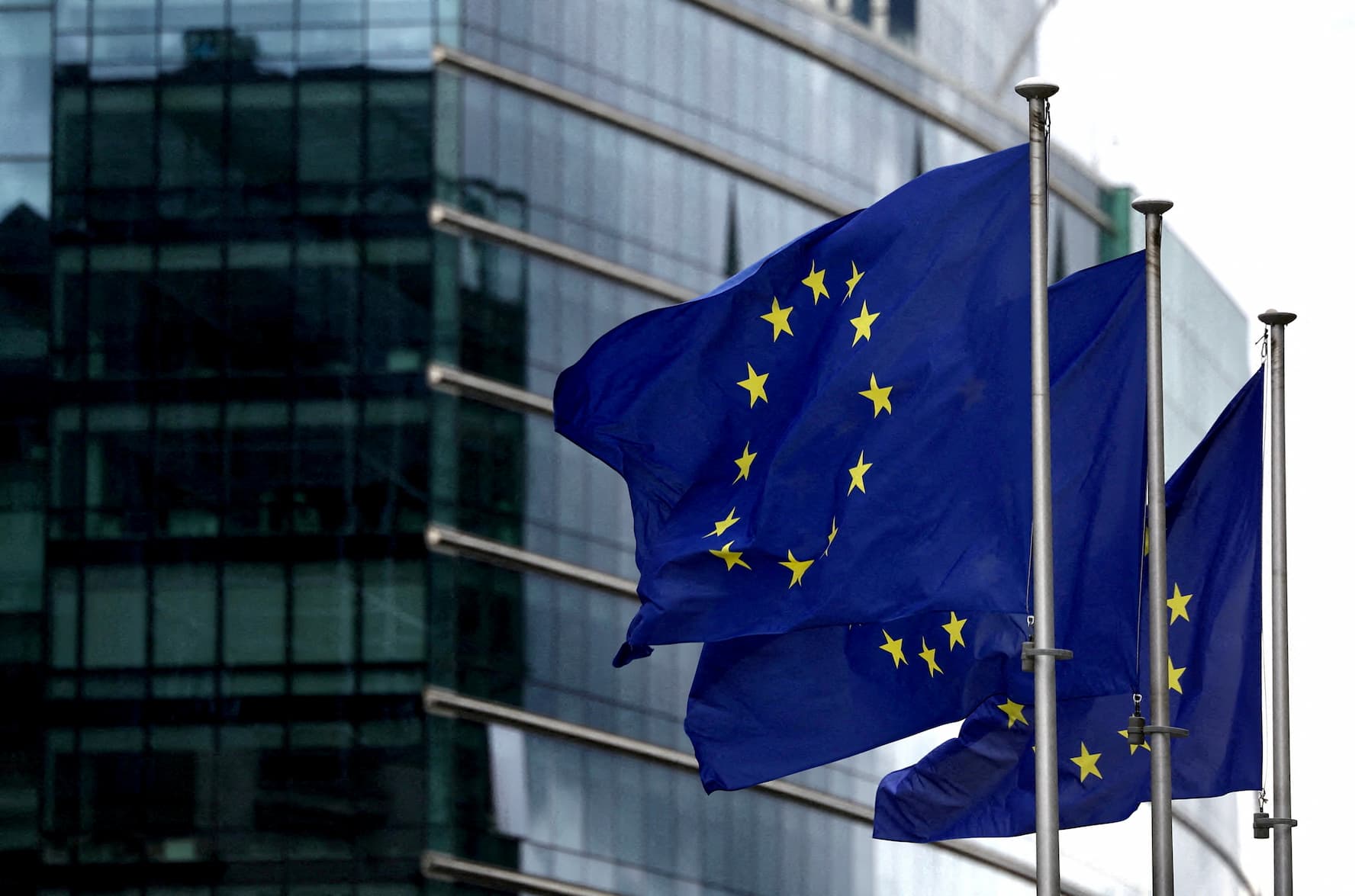- Hungry Strategist
- Posts
- 🇪🇺 How the EU Tech Regulations Are Eating Up Tech's Lunch
🇪🇺 How the EU Tech Regulations Are Eating Up Tech's Lunch

Estimated read time: 8-mins
TLDR

Super cheat sheet for the EU regulations hammering on Tech
Credit: Peterson Technology Partners
How It Started Going Rogue
I remember the moment distinctly—back in 2017, strange business proposals began filling my personal inbox. At the time, I ran a website translating comic content, drawing significant traffic. Terms like "GDPR," "EU regulation," and "compliance audit" were suddenly everywhere. It didn’t take long to grasp the magnitude of what was unfolding. Europe’s General Data Protection Regulation (GDPR) was poised to redefine the global internet, compelling users to click through layers of consent screens before accessing content.
Background
GDPR, or General Data Protection Regulation, is a set of EU rules designed to protect personal data and give individuals more control over how their information is used. Personal data includes anything that identifies you, such as your name, email, or IP address. GDPR ensures transparency and grants rights like accessing your data, correcting mistakes, or requesting deletion. Companies must get your consent before using your information and face hefty fines for violations. It applies to any business handling the data of EU citizens, ensuring better privacy and security for everyone.

This is not saying privacy and data protection is not important by any means. And I do see success in the efforts of EU to unite and advocate in the power game with big megacorps. Nevertheless, it’s a delicate balance and the implications are far-reaching such that the decision makers must appreciate the gravity of the situation and its ripple effects globally.

The Inflection Point
The insights from DGAP below remains relevant and spot-on in 2024 (the post was from 2021), while also providing extrapolated future scenarios. If we reflect on where we are now, the trajectory of the blue line most accurately depicts the status quo “China and US adopt EU roles to access European market”, where Europe is close to the edge of a steep downturn.

Credit: GDAP.org
EU: The Global Regulator
Europe's ambition to lead the world in ethical tech governance has produced landmark legislation, from the Digital Markets Act to the AI Act. This regulatory zeal has consequences on tech companies, invoking a review of their strategy and investment decisions in the region
Facebook and Instagram are offering subscription for no ads in Europe. Google is testing the aftermaths of removing news from search results in the region. Apple Intelligence will be arriving late in Europe by 6-months to April 2025
Meta’s exploration of a new business model results in a projected revenue hit of 60% for the region—an approach they wouldn't consider in less restrictive markets. This represents a 4% loss of Meta’s global advertising revenue VS non-compliance may result in a fine as much as 10% of the company's global annual turnover

Credit: Statista
Surprisingly, the decent cash stream brought in by fines only contributed to 0.008% of Europe’s GDP in 2023, but that’s considering the GDPR act alone. We can only hope there won’t be a wide spread of sacrificing long term success for short term agenda.
Here’s the problem with leading the world in regulation: you can only regulate what is built, and the E.U. doesn’t build anything pertinent to technology.
Final Thoughts
Regulation forces should be considered as a norm going forward and to be fair, they are surfacing as a global phenomenon.
As we advance on to the “EU begins to over-regulate; innovation and digitization sink” stage illustrated in the chart from GDAP. Here are some observations:
Building FOR Europe is only a Plan A - While we see tech companies molding their products to fit the EU’s regulatory framework, we are witnessing pushbacks and Plan Bs in their other hand. Most have paid the ticket price to reserve their seat in Europe, but the question is how far can this go? When does the simple arithmetic of economical burden outweighs its merits?
Lift a rock only to drop it on one's own feet - According to the Euronews, half of the top 10 countries in AI startup industry are in Europe. Though the list remains to be discussed, the AI enthusiasm is confirmed. For instance, France published a national AI strategy with €500 million to be invested in the creation of AI clusters by 2030. Limiting the tech giants such that there are no shoulders to stand on is concerning for fundamental reasons. “French startup Mistral is building compelling large language models; the Nvidia action in particular could be fatal to their future.” - Stratechery
Europe: The isolated continent: Efforts to establish European alternatives to US and Chinese technologies have largely faltered, hindered by low adoption rates within Europe and burdensome bureaucracy. By 2030, the EU's regulatory-heavy approach has not only stifled innovation but also diminished its influence on the global tech stage, leaving it increasingly isolated from major advancements. High-profile initiatives, such as the Gaia-X data infrastructure and “flagship democratic technologies,” failed to resonate with both consumers and markets, further cementing Europe's reliance on foreign tech giants.
In contrast, the United States and China have surged ahead, driven by agile, consumer-focused policies and relentless innovation. Their dominance underscores a stark reality: while Europe doubled down on regulation, others prioritized adaptability and growth, reshaping the global tech landscape in their favor.
It’s worthy to keep close tabs on this development as regulators globally tend to “pay tribute” to the works of other regions. We shouldn’t grow with technology democracy and then control it with over-regulated restraint.

Let me handle it
What is this?
Flux is the latest, highest-quality text-to-image generator in town, excelling in the race with its ultra-realistic imaging and unbelievably well prompt reasoning.

What can you use it for?
Flux is a must try for anyone who needs to add some visuals into their work. It also has the same text embedding feature like Ideogram as you can see from the example above. We will go as far as saying this is a Midjourney alternative.
What’s the price?
Depends on the tool you are using (since the model is open source). The one we have provided offers 5 credits (at the time of writing) for new accounts, and will require a subscription to keep the wheels running thereafter.

Pro tips
Adding “IMG_1018.JPG” into your prompt can magically boost the photo-realism of your image results
Most Flux tools require a subscription after you have consumed the credits. You can try this colab that allows you to run technically as much generations as you want (with limitations apply from Google Colab itself only). Enjoy, and please share this out if you have friends who are interested!
What’s new in town
Gives me the creeps!
Food of Thought
Why so serious?







.jpg?h=1063&iar=0&w=1600)